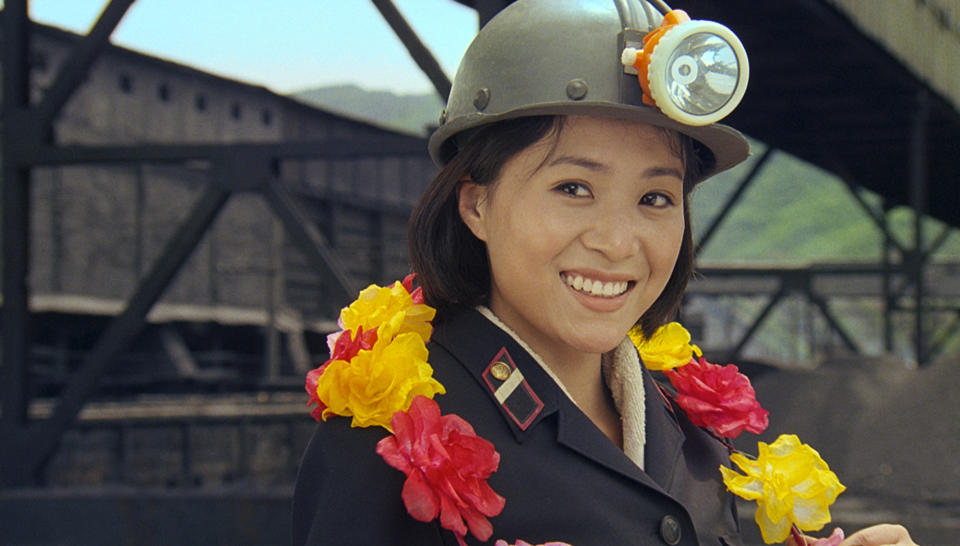Afghan, NKorean films on display at Asian festival
SEOUL, South Korea (AP) — Along with the now inevitable galaxy of stars promoting blockbusters from across Asia, this year's Busan International Film Festival will screen a North Korean film for the first time in almost a decade as well as six classic Afghan movies that were hidden in a wall to save them from the Taliban.
The continent's showcase film festival, a glitzy nine-day affair that opens Thursday, has become a way for Asian nations such as China and especially South Korea to highlight their rise in the world pop culture scene. This year's fest will even take a break from film for a performance by South Korean rapper PSY, who galloped to global fame with his song "Gangnam Style."
But films from two nations not normally on the radar of regional cinephiles are also drawing attention.
"Comrade Kim Goes Flying," which was co-directed by a North Korean and two Europeans, is the first North Korean film to screen at the South Korean festival since 2003. The movie, about a young woman who runs off to join the circus as an acrobat, won the award for best director at the biennial Pyongyang International Film Festival last month.
Observers are curious to see how local audiences will react to it while relations remain badly frayed between two nations still technically at war.
"There is great expectation among South Korean viewers about this film because they can have a rare look into the northern neighbor's film-making world without political worries," said Kim Ji-seok, one of the festival organizers who noted they had determined the North Korean film to be "free from ideologies and propaganda."
Six Afghan movies made from the 1960s to the 1980s will also be shown, including "Like Eagle," a 1965 work about a wide-eyed girl traveling in Kabul. The films were hidden in a wall when the radical Islamist Taliban regime took power in the 1990s and banned most forms of entertainment, including movies. The films resurfaced in 2004 after the Taliban were ousted.
"These Afghan films shed a light on the lives of people in a country that we have only known as war-torn and once a hideout for Osama bin Laden," said Kang Yu-jung, a South Korean film critic. "Their screening shows that this part of Asia has started to have an interest in the stories of Afghans, not just in the country's political situation."
The festival, held since 1996 in the southeastern port city of Busan, is considered the biggest of its kind in Asia and has expanded rapidly along with the region's film industry, led by China and South Korea. Both countries films and stars will be front and center at this year's event.
"Cold War," a Hong Kong gangster thriller featuring top stars Andy Lau and Aaron Kwok, opens the festival, and Chinese actress Tang Wei will host the opening ceremony.
Other films drawing attention are Kim Ki-duk's "Pieta," the brutal story of a debt collector who cripples those who can't pay until he meets a woman who claims to be his mother. It took the Golden Lion award for best picture at last month's Venice Film Festival, the first South Korean film to do so.
Some of the biggest buzz has been around South Korean director Hur Jin-ho's "Dangerous Liaisons," which is set in 1930s Shanghai and stars South Korea's Jang Dong-gun and China's Cecilia Cheung. Organizers said tickets for the movie sold out in just 12 seconds.
A film with a political angle is "National Security," which based on a memoir written by an opposition politician who faced harsh torture under South Korea's military regime in the 1980s.
Other films making their world premieres include: "The Commander and the Stork," a joint Italian-Swiss comedy about a widowed man who falls in love with a poor artist; "El Condor Pasa," a South Korean movie about a Catholic priest who gets involved the death of a teenage girl he cherishes; and "A Motor Home Adventure," a Chinese movie about a man who is trying to find a child he may have had with one of his 36 former girlfriends in the hope of receiving bone marrow transplant.


